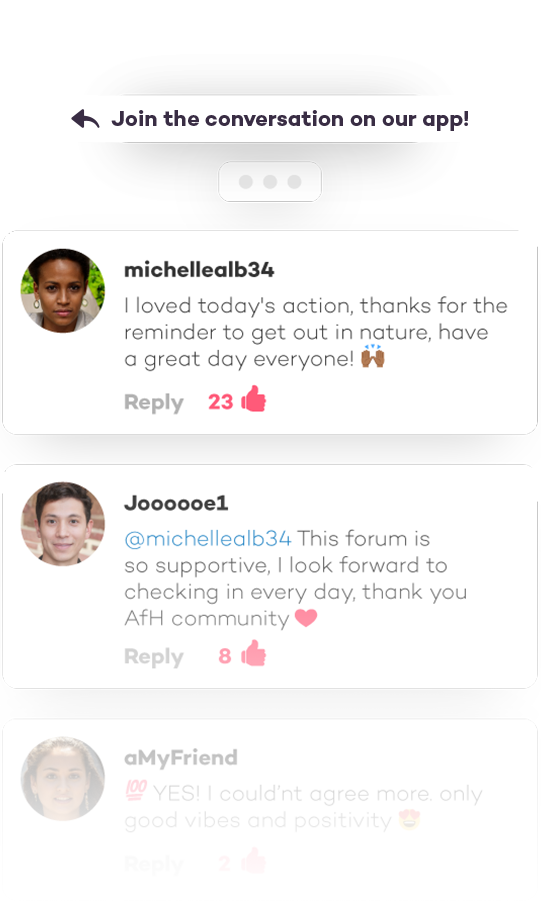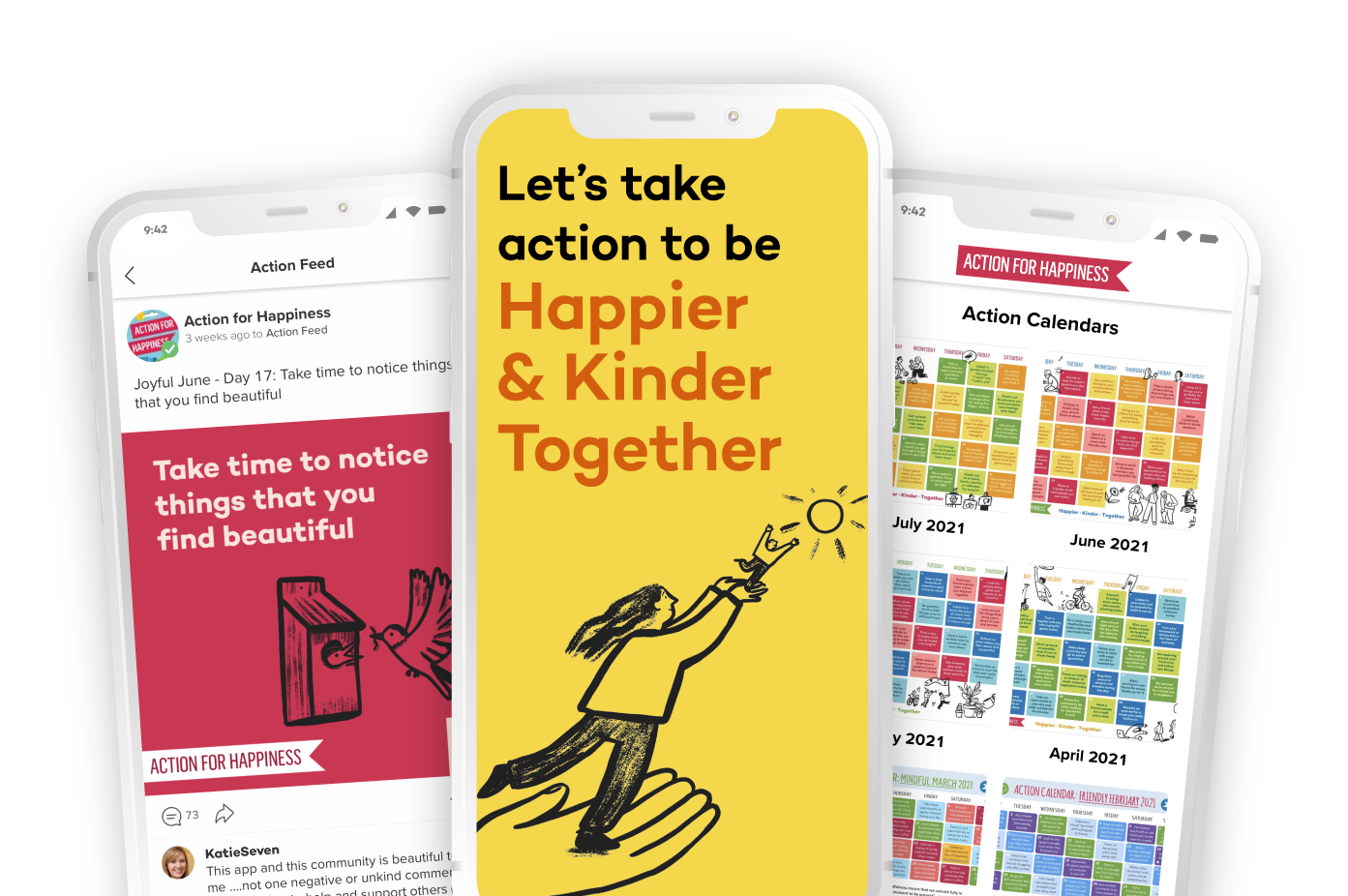Welcome to our Happiness Club training and resources!
Happiness Clubs are:
- a series of short sessions that can be run at lunchtime or after school, in small groups, at your school or organisation.
- based on the Ten Keys to Happier Living.
- an opportunity to explore and build happiness skills with children.
- fun, interactive and creative.
- run by people under the auspices of organisations with safeguarding policies and procedures in place rather than by individuals in their own right.
During the sessions, children are encouraged to become ‘Happiness Detectives’ to discover more about the Ten Keys to Happier Living and the actions they can take to feel happier.
How to Deliver Happiness Clubs
We provide eight short training videos with accompanying slides and the Padlet resource for delivery. You will need to obtain a copy of the 50 Ways to Feel Happy book resource.
The training videos, slides, and Padlet board are offered free of charge. To access the full set of resources, please complete the form at the bottom of this page. This helps us understand the kinds of organisations that are interested in Happiness Clubs, where clubs are taking place, and how many people are interested in them.
Training videos
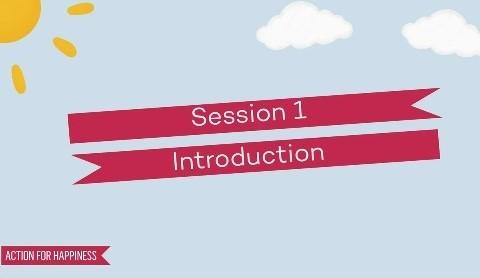
We provide eight short training videos, 11 minutes and under, to help you plan, develop and facilitate Happiness Clubs in your school or organisation.
To access all the training videos, please complete the form at the bottom of this page.
Slides to accompany the training
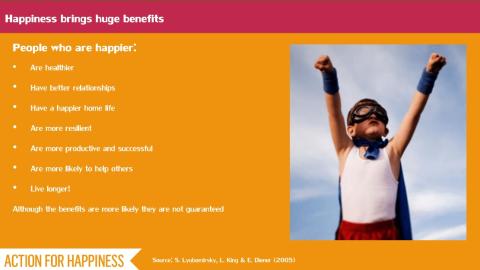
We provide a set of PowerPoint slides for each session as part of your preparation, to help you deliver the best possible experience for your Happiness Club.
The slides are stored on Dropbox. We will email you the link once you complete the form below.
You don't need a Dropbox account to access the slides. If you do not have Microsoft PowerPoint, your device should be able to automatically convert the slides to whatever presentation program you use, such as Google Slides or Keynote.
Resources
You will need to use two key resources to deliver the clubs.
- You will need a copy of the ’50 Ways to Feel Happy’ children's book.
- You will need access to the Padlet Board for Happiness Clubs.
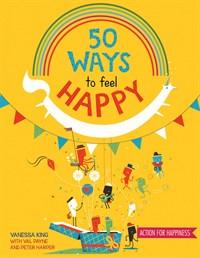
'50 Ways to Feel Happy' is an action-packed, illustrated book that helps children build happiness skills and develop helpful habits for their daily lives.
You can purchase the book from York Book Shop or Amazon.
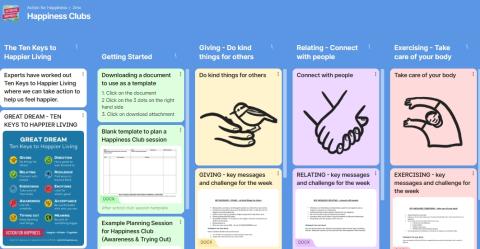
Padlets are visual boards for collecting, organizing, and presenting content.
The Happiness Club Padlet Board provides additional resources, including session plans, further information and activities to support the delivery of Happiness Clubs.
You can access the board on Padlet.com or by using the QR code below.
You can even download the Padlet App for your phone.
Contacting Us
The Happiness Clubs are designed to be run using the online guidance provided on this page.
However, if you should require additional support, please email [email protected]
We'd also love to hear from you if you'd like to report an issue with the resources or share your experience using them.
Case Study – Diocese of Peterborough
The Diocese of Peterborough has worked with Action for Happiness over several years, piloting Happiness Clubs in Schools.
Three cohorts of Children and Family Workers were trained and then very successfully delivered Happiness Clubs in schools.
Click here to visit their website for further information and a training video ‘Running Happiness Clubs in Ten Steps’.
The video was developed in collaboration with Hope Together, an organisation providing churches with practical community-building resources.
Thanks to the Diocese of Peterborough and Hope Together for their hard work, passion, and support in piloting Happiness Clubs and developing training and a range of resources.
Action for Happiness welcomes and supports people of all religions, beliefs and worldviews who are taking action to build a happier, kinder world.
Case Study – Kingsthorpe Grove Primary School
Kingsthorpe Grove Primary School is a large primary school in Northampton Town with around 490 pupils and 100 staff. The school comprises two classes per year group, a vibrant nursery, and a SEN unit.
Situated in an area facing socioeconomic challenges, the school has successfully addressed institutional complexity and student negativity by strategically utilising the evidence-based Action for Happiness (AfH) 10 Keys to Happier Living framework in a whole-school approach.
Before this shift, the school struggled with conflicting resources, resulting in inconsistent communication among staff and families. The adoption of the 10 Keys provided the necessary "single resource" and systematic language, transforming the school's approach to mental health from reaction to prevention.
Click here to read the full case study, how they implemented the approach and the outcomes.
Responsible Use Policy
By running a Happiness Club and using our resources, you agree to our responsible use policy.
- Happiness Clubs must be free at the point of delivery. Children and families must never be charged for access to these resources, and there should be no personal financial benefit to any individual running these clubs.
- Happiness Clubs should only be delivered through schools and other organisations that offer provisions for children and young people in a learning environment, such as schools, youth groups, care homes, faith organisations or groups etc. Small group home educators are welcome to use these resources.
- No private individual may set up, advertise, and run a private Happiness Club outside of pre-existing formal provision for children or a pre-existing learning environment.
- Anyone delivering Happiness Clubs must have undergone the appropriate criminal record checks, and child protection procedures must be in place. In the UK, this would be a DBS check and a safeguarding policy; depending on where the Happiness Club is taking place, other local record checks or policies may be appropriate.
- There is a small chance that discussing happiness may be challenging for some children. The organisation or learning environment should have existing procedures in place for supporting children in mental distress, and where necessary, these procedures should be followed locally.
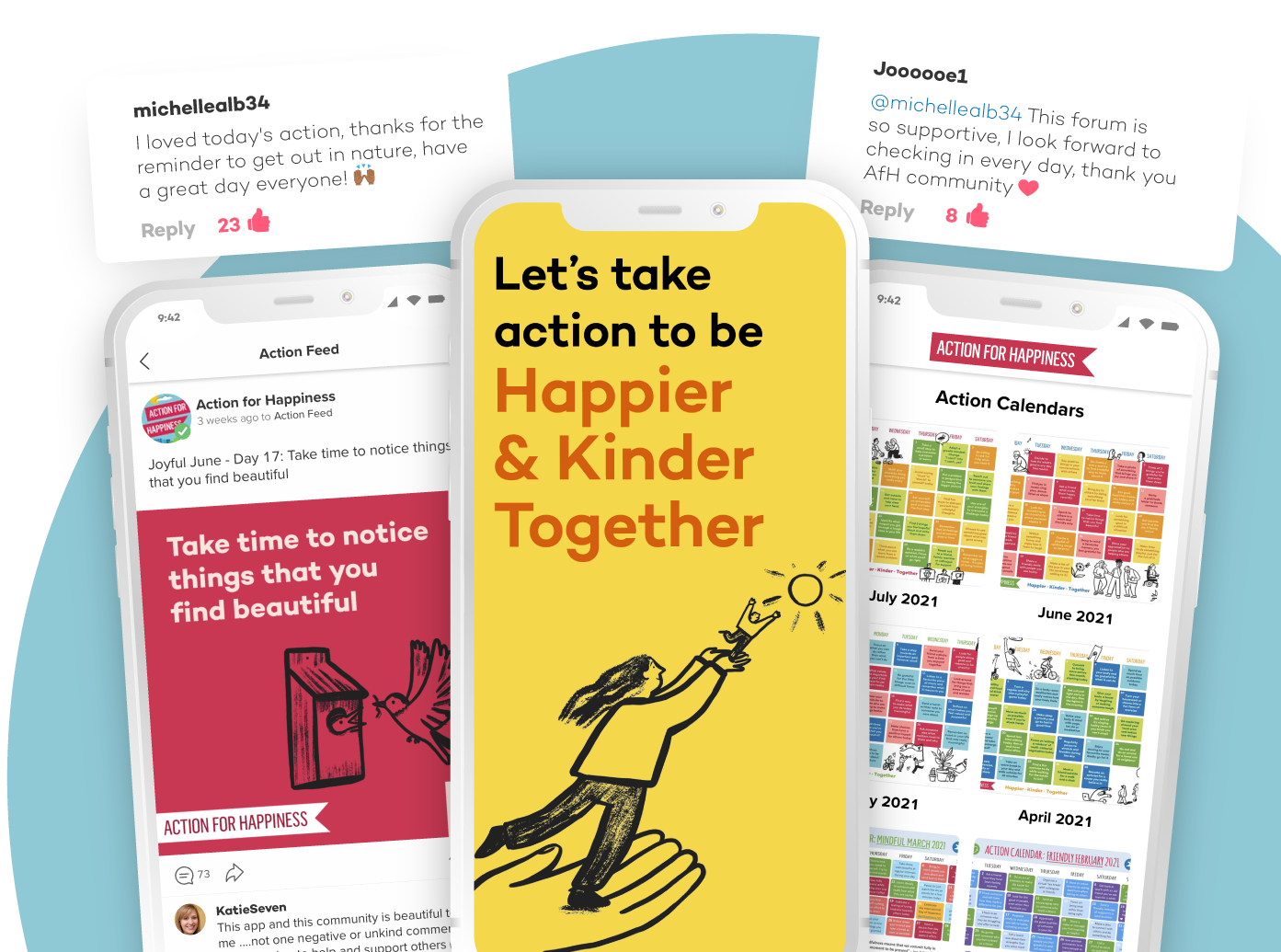
Download the FREE Action for Happiness app for iOS or Android
Gives you friendly nudges with an action idea each day Sends you inspiring messages to give you a boost Helps you connect & share ideas with like-minded people

